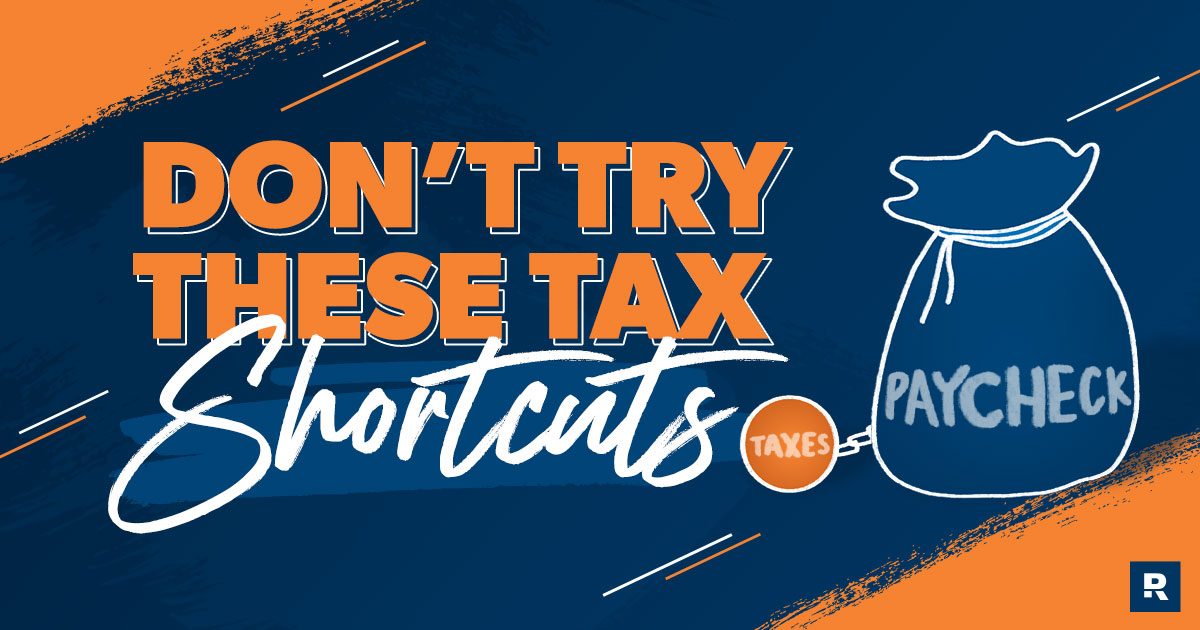
Can you really avoid paying taxes?
It’s a question that comes up at tax time every year. People want to pay less to the government and save as much money as they can. You can’t avoid the IRS, but you can take steps to protect your income.
Credits and deductions can reduce your tax bill if you’ve earned them. However, that doesn’t mean every tax-saving tactic is right for you. For instance, some people go so far as to invest money in something that saves taxes on the front end but costs them more in the long run.
That’s why it’s always a smart move to talk with a tax professional to ensure you understand how your investments impact your taxes.
Don’t Use These Strategies to Avoid Paying Taxes
We’re all about saving money on taxes. But not all tax-saving strategies are created equal. Let’s take a closer look at four common ways people try to avoid paying taxes—and why none of them are a good idea for tax savings alone.
1. Opening a Traditional IRA
Some people looking for a way to put themselves in a lower tax bracket will open a traditional IRA and write off whatever money they put in there. While saving money’s great, there is a problem with this strategy.
Any money that goes into a traditional IRA is tax-deferred, which means you pay taxes on it when you take it out. At that point, your nest egg will most likely be much bigger. So you’re saving a little money on taxes now only to pay a lot more of it later. That’s not the best deal!
If you want to save for retirement, the first place you should put money is into a matching 401(k) plan. Even if it’s tax-deferred, you’re still getting free cash. If you have a Roth 401(k) option at work, go for it because it means your money will grow tax free. If not, invest up to your match, then open a Roth IRA so you don’t miss out on the opportunity to enjoy tax-free growth.
2. Buying an Annuity
Keeping with the investing theme, an annuity is simply a savings account with an insurance company. It can be tax-sheltered, but the problem is that you usually pay an extra fee to get that shelter. Sure, you save on taxes, but those savings cost you.
The only time it might be good to use a variable annuity is when you’ve maxed out all other retirement savings and your house is paid for, and most people aren’t there yet. Don’t open one just to save on tax day.
3. Saving Money in a Whole Life Insurance Policy
A salesman might pitch to you that the interest accumulated on the savings portion of a whole life or cash value policy does so free of taxes, so it’s good to save your money there. However, that "good" isn’t just bad—it’s ugly.
Here’s why whole life insurance policies are a bad investment:
- Whole life insurance policies are notorious for bringing low rates of return. You could earn much more by investing in good growth stock mutual funds instead.
- When you die, your family only receives the face value of your whole life insurance policy. All that money you saved inside the insurance plan? Gone.
Don’t choose a bad insurance product just to avoid taxes. Instead, invest in tax-favored retirement plans, like a Roth IRA or your workplace 401(k). You’ll still get tax breaks for your contributions—without the subpar rate of return.
4. Keeping the Mortgage Too Long
This one is a little more long-term, but it’s important to address. Don’t keep a mortgage just to save on taxes. The deduction you get for mortgage interest isn’t dollar-for-dollar, so you’ll pay more in interest than you save with Uncle Sam.
Don’t settle for tax software with hidden fees or agendas. Use one that’s on your side—Ramsey SmartTax.
Let’s say you have a $200,000 mortgage at an interest rate of 5% and fall into the 25% tax bracket.
- Keep the mortgage, and you’ll pay $10,000 a year in interest and save $2,500 in taxes.
- Pay off the mortgage, and you’ll miss out on the $2,500 tax deduction but save $10,000 in interest.
Do you really think it’s smart to pay the bank $10,000 just so you can get a $2,500 tax break? We didn’t think so. Pay the mortgage off and be done with it!
Save Money With a Tax Professional You Can Trust
Dave’s tax Endorsed Local Providers (ELPs) are tax professionals who will take the time to explain your taxes and make sure you get every deduction you’re eligible to receive. Don’t wait until the tax crunch. Contact your tax pro today!


